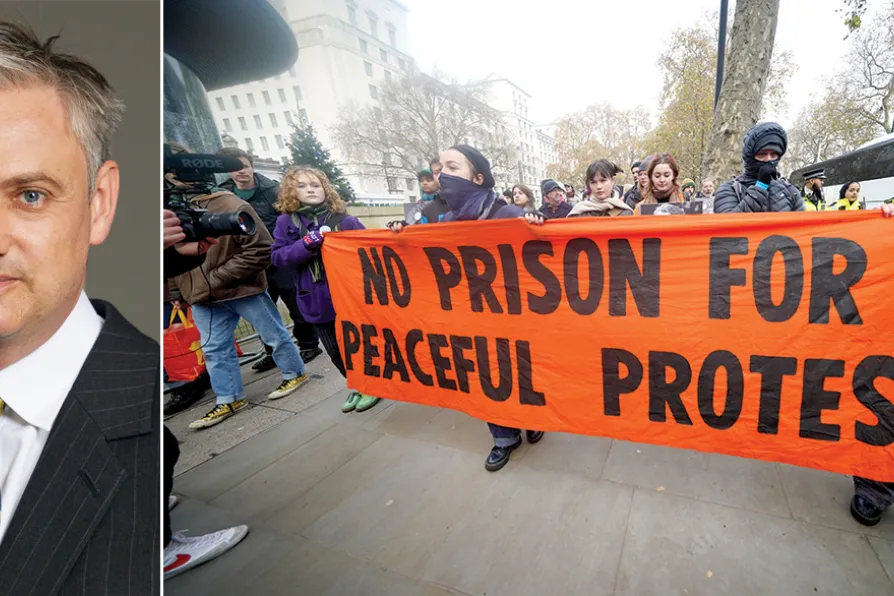Labour prospects in May elections may be irrevocably damaged by Birmingham Council’s costly refusal to settle the year-long dispute, warns STEVE WRIGHT
Enemy of the People
KEITH FLETT looks at a Labour turncoat behind the ratcheting up of measures to courtail the right to protest

 ENEMY OF THE PEOPLE: (L to R) Lord Walney; Just Stop Oil protesters outside New Scotland Yard in London on December 2 2023
[Walney pic: Public domain]
ENEMY OF THE PEOPLE: (L to R) Lord Walney; Just Stop Oil protesters outside New Scotland Yard in London on December 2 2023
[Walney pic: Public domain]
JOHN WOODCOCK was a failure as a right-wing Labour MP between 2010-2019, having come from a New Labour pedigree.
In his final period as an MP he sat as an independent after allegations about his behaviour, never resolved, were made.
After losing his seat he was made a peer by Boris Johnson and his journey to the political right has continued since.
Similar stories

It’s not just the Starmer regime: the workers of Britain have always faced legal affronts on their right to assemble and dissent, and the Labour Party especially has meddled with our freedoms from its earliest days, writes KEITH FLETT

The government cracking down on something it can’t comprehend and doesn’t want to engage with is a repeating pattern of history, says KEITH FLETT

The legacy of an 1820 conspiracy in revenge for Peterloo resonates down the ages, argues KEITH FLETT











